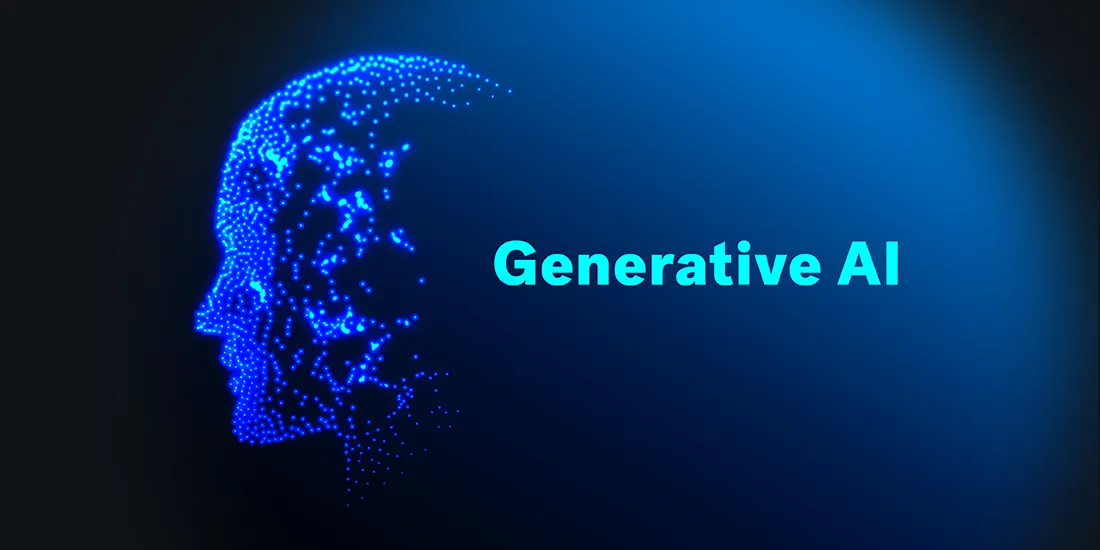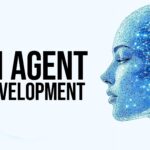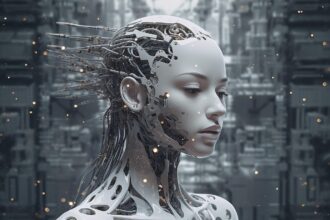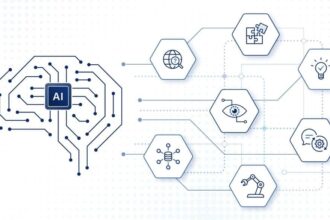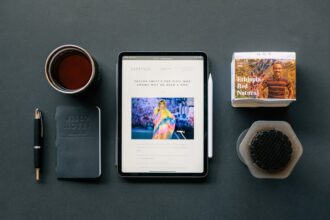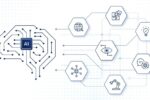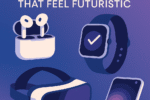In just a few short years, generative AI has gone from futuristic novelty to everyday necessity. What began as experimental tools—AI that could write essays, draw pictures, or compose music—has evolved into a force reshaping how we create, work, and live in 2025.
Far from replacing humans, generative AI is becoming a creative partner, productivity enhancer, and lifestyle companion. But with these transformations come new questions about originality, ethics, and the future of human identity.
This article explores the three major arenas where generative AI is having the greatest impact—creativity, work, and daily life—and what these shifts mean for individuals and society.
Generative AI and Creativity: The New Muse
For centuries, artists and creators have relied on tools to amplify imagination. From the paintbrush to the camera to Photoshop, technology has always influenced art. Generative AI is simply the latest—and perhaps most radical—evolution.
The Creative Boom
Platforms like MidJourney, Runway, and Adobe Firefly empower anyone to generate stunning visuals with a text prompt. Musicians are experimenting with AI composition tools to spark inspiration. Writers use models like ChatGPT to brainstorm storylines or draft dialogue.
This democratization of creativity means that even those without traditional skills can now express ideas visually, musically, or narratively.
📌 Example: Independent filmmakers are producing short films with AI-generated storyboards, special effects, and soundtracks—reducing costs that once made filmmaking inaccessible.
The Debate Over Originality
Of course, these advances raise critical questions: Who owns AI-generated work? Is it “art” if created in seconds? Many argue that AI doesn’t replace human creativity but augments it, offering new mediums for expression.
Generative AI at Work: Productivity Reimagined
In the workplace, generative AI has quickly shifted from experimental pilot projects to core productivity tools.
Knowledge Work Transformation
- Marketing teams use AI to create ad copy variations in seconds.
- Developers rely on AI coding assistants to debug and accelerate software builds.
- Lawyers employ AI to draft contracts, while financial analysts leverage it to generate reports.
A 2024 McKinsey study estimated that generative AI could add up to $4.4 trillion annually to the global economy, with the largest impacts in sales, customer operations, software, and R&D.
Human + AI Collaboration
The winning formula isn’t AI alone—it’s humans working with AI. Employees are learning to prompt, refine, and curate outputs, making “AI literacy” a must-have skill across industries.
📌 Case Study: A small marketing agency used AI tools to handle repetitive campaign tasks, freeing up staff for strategy and client relationships. Within a year, revenue grew 40% without adding headcount.
Generative AI in Everyday Life: From Assistants to Companions
Beyond work, AI is becoming woven into daily routines.
Everyday Uses
- Shopping: Personalized recommendations are now AI-generated.
- Healthcare: AI chatbots provide first-line health guidance.
- Education: Students use AI tutors for personalized learning.
- Travel: Generative AI designs itineraries tailored to individual preferences.
Companionship and Culture
Perhaps most strikingly, generative AI is entering the realm of companionship. Apps like Replika and AI-driven social bots are offering digital friendships and even romantic simulations. Meanwhile, AI influencers are becoming mainstream marketing figures, blurring the line between digital and human celebrity.
📌 Example: Virtual K-pop idols powered by generative AI have amassed millions of followers, headlining campaigns for global brands.
Challenges and Ethical Questions
As generative AI integrates deeper into society, challenges emerge:
- Misinformation: Deepfakes and synthetic content complicate trust.
- Intellectual property: Artists push back against unauthorized training on their work.
- Bias and representation: AI often reflects and amplifies social biases.
- Human identity: If AI can create endlessly, what does it mean to be “original”?
The push for regulation and transparency—from the EU’s AI Act to industry-led ethical guidelines—aims to strike a balance between innovation and accountability.
A Glimpse Into the Future
Generative AI is not a fad; it’s a new layer of human experience. Like the internet or smartphones, it’s redefining how we think, work, and connect.
The future likely holds:
- Hyper-personalized AI companions integrated into daily life.
- Hybrid creative projects where AI and humans co-author art.
- Workplaces redesigned around AI-enhanced workflows.
The challenge—and opportunity—is ensuring AI empowers people rather than erasing human value.
Key Takeaways
- Generative AI is democratizing creativity, giving non-experts access to powerful artistic tools.
- Workplaces are being transformed as AI augments human productivity across industries.
- Everyday life is increasingly AI-enhanced, from personalized shopping to AI companionship.
- Ethical challenges remain, including misinformation, ownership, and authenticity.
- The future is not AI versus humans, but AI with humans, reshaping society together.
